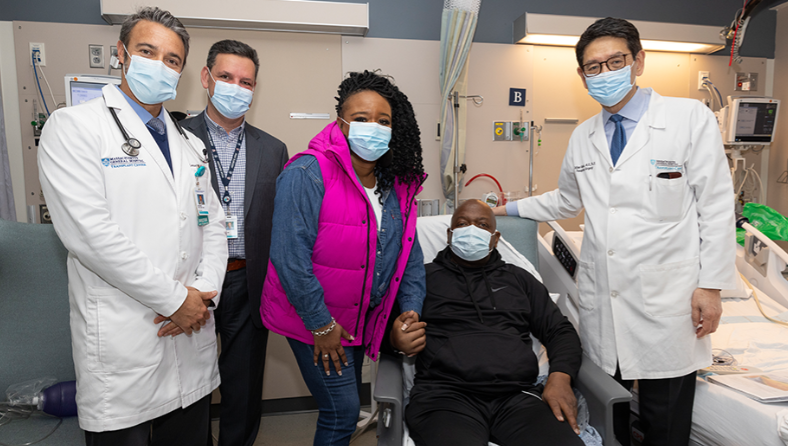Rick Slayman, a 62-year-old Massachusetts Department of Transportation manager, became the first living recipient of a kidney transplant from a genetically modified pig, a significant milestone in the world of cross-species organ transplantation. Discharged from Massachusetts General Hospital just two weeks post-operation, Slayman’s success could give hope to thousands who wait for organ transplants.
“This moment — leaving the hospital today with one of the cleanest bills of health I’ve had in a long time — is one I wished would come for many years. Now it’s a reality,” Slayman expressed. The success of this operation, following two previous failed attempts with pig heart transplants, is seen as a promising sign for the future of xenotransplantation (transplants between species).
Dr. David Klassen, Chief Medical Officer for the United Network for Organ Sharing, detailed the magnitude of this surgery, stating, “Though much work remains to be done, I think the potential of this to benefit a large number of patients will be realized.” This optimism, however, is tempered by the acknowledgment of the myriad challenges that lie ahead, including ensuring an adequate supply of genetically engineered organs and navigating the cost implications for the healthcare system.
Slayman’s journey to this groundbreaking surgery was driven by his deteriorating condition and the limitations of dialysis treatment. The genetically modified kidney, designed by biotech firm eGenesis, incorporated human genes to enhance compatibility and reduce the risk of rejection, a critical concern in xenotransplantation.
This operation not only offers a glimmer of hope for over 550,000 Americans undergoing dialysis, but also stands as a testament to the advancements in genetic editing technologies, such as CRISPR. As this science progresses even further, the goal of making dialysis obsolete comes closer to reality, potentially transforming the lives of the millions suffering from chronic kidney disease.












